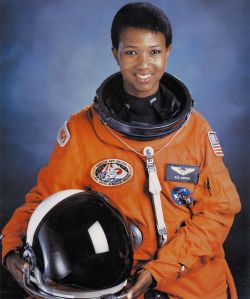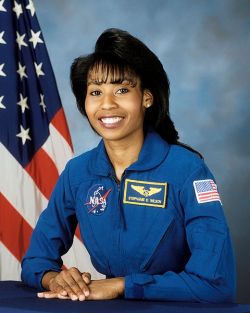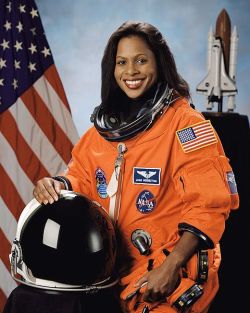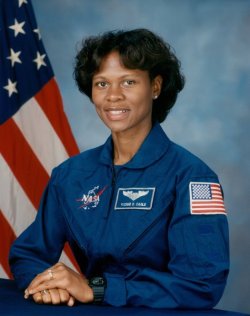Here is a really great post from tumblr. I did not even realize that we have had that many black women in space. I think we must make sure that everyone knows this so that even young girls can know they can be Astronauts if they want to be Astronauts.
knowledgeequalsblackpower:
Dr. Mae C. Jemison
Stephanie Wilson
Joan Higginbotham
Dr. Yvonne Cagle
As we admire these women this month, we must also remember how difficult of a journey they must have had. And we must make a commitment to make the journey easier for little Black girls who are interested in science.
In her book Swimming Against the Tide: African American Girls and Science Education, Sandra Hanson explodes the myth that black girls are somehow disinterested in science due to hyper-religiosity or “culture.” Hanson found that, despite significant institutional and societal barriers, there is greater interest in science among African American girls than in other student populations. She frames this seeming paradox in historical context, stressing that “Early ideologies about natural inequalities by race influenced the work of scientists and scholars as well as the treatment of minorities in the science domain. Racism is a key feature of science in the United States and elsewhere. This has a large impact on the potential for success among minority students. Early work on science as fair has not been supported.”
Hanson outlines some of the obstacles that confront budding African American women scientists from elementary school to the postgraduate level. Stereotypes about girls of color lacking proficiency in science, the absence of nurturing mentors, the dearth of education about people of color who have contributed to science research (i.e., culturally responsive science instruction), and academic isolation often deter youth who would like to pursue science careers.
…
Conservatives who disdain “liberal multiculturalism” in higher education dismiss such concerns about diversity in hiring as handwringing. According to this view there is only one standard academia should use; objective and unbiased, untainted by affirmative action.
Yet white students are beneficiaries of cradle to grave affirmative action. White students grow up seeing the dominant image of rational, trailblazing scientific discovery (from films like Dr. Strangelove to 2001: A Space Odyssey to Close Encounters to The Right Stuff) as spearheaded by courageous rugged individualist generally white males. They are socialized to believe in a template of “purely” meritocratic success and individual achievement. Meritocracy becomes gospel and lucre. They can take it to the bank and use it to repel the less qualified savages.
…
While she was at UCLA Devin Waller was the only African American woman in the Astrophysics department. On the first day of her upper division classes she recalls being asked by male students befuddled by her presence whether or not they “were in the right class.” Since peer networking and study groups in science departments are largely white and male, white academic success and scholarly legitimacy in science become a self-fulfilling prophecy. For black women in white male dominated professions, showing vulnerability and having any kind of public failure are simply not options. Like many women of color Devin’s approach was that “You kind of go in there and set a precedent. Everything you do is watched. You have to establish yourself as intelligent. There were no black women in my classes. No one who looked like me.”
Not having anyone who looks like them as a faculty member, administrator and/or mentor influences the sense of isolation, anxiety, and burnout that students of color often experience in science disciplines. As an Electrical Engineering major Kimberly Bryant, founder of Black Girls Code, a nonprofit dedicated to developing African American girls as computer programmers, also found herself “feeling culturally isolated” during college. On her website she argues that the “dearth of African-American women in science, technology, engineering and math professions…cannot be explained by, say, a lack of interest in these fields. Lack of access and lack of exposure to STEM topics are the likelier culprits.”
In her autobiography Find Where the Wind Goes: Moments from My Life, Mae Carol Jemison (the first black woman astronaut and first woman of color in space) reflects on how, after professing interest in being a scientist to one of her teachers, she was told to set her sights on being a nurse instead. As a sixteen year-old undergraduate at Stanford University, Jemison was practically shunned by her physical science instructors. Although her experiences occurred during the sixties and seventies, the dominant view of who is a proper scientist has not changed and nursing is still a more acceptable aspiration for black women who are culturally expected to be self-sacrificing caregivers for everyone in the universe.
Read more
Agnostic Skeptical Centrism. - knowledgeequalsblackpower: Dr. Mae C. Jemison ...




